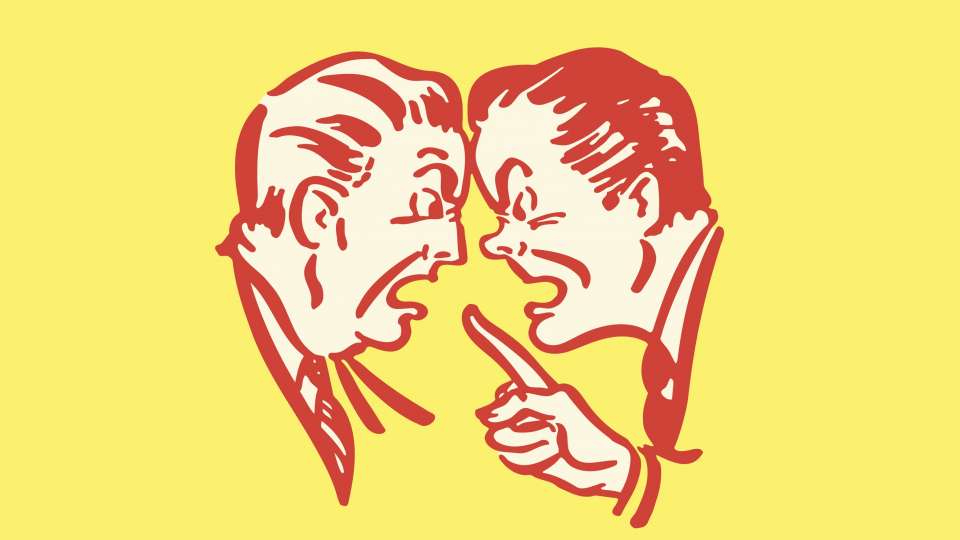

How to Respond When Someone Insults You
Insults—whether subtle jabs or blatant verbal attacks—have the power to pierce through your confidence and shake your sense of self. They don’t just sting in the moment; if left unaddressed, they can leave long-term damage in the form of diminished self-worth, social anxiety, and even depression. Whether someone throws a rude remark at you during a meeting, mocks your appearance in passing, or excludes you in a way that feels deliberate, the impact can ripple far beyond that instant.
Even low-key insults—often disguised as harmless jokes or playful teasing—can chip away at your peace of mind. These so-called “microaggressions” might not leave bruises, but they can definitely leave scars. Over time, such repeated slights can make you question your value, distance yourself from others, and carry a quiet but persistent emotional weight that sours your interactions with the world around you.
And while some insults come in the form of obvious, harsh words, others are more camouflaged—embedded in tone, facial expression, or omission. Understanding the many forms insults can take is the first step in learning how to rise above them.
Understanding the Forms That Insults Take
Insults don’t always come in the form of shouted words or cruel taunts. In fact, many of them are subtle, indirect, or expressed through non-verbal cues. While physical aggression—such as punching or slapping—certainly qualifies as a direct insult to one’s dignity, most everyday insults tend to be verbal or passive in nature.
Sometimes they’re framed as jokes: “Just kidding,” they’ll say after tearing down your idea. Other times, they come wrapped in false praise, as in a backhanded compliment like, “You’re smarter than you look.” Mimicry, condescending tone, fake enthusiasm, or pretending to be fascinated by something you said—only to roll their eyes behind your back—can all serve as subtle insults.
Even body language can carry an insult without a single word being spoken. A sarcastic smirk, an overly theatrical smile, a cold, dismissive stare, or a deliberate raised eyebrow can speak volumes about what someone thinks of you.
These are all considered insults of commission—active behaviors intended to undermine, belittle, or humiliate. But equally harmful, and often harder to pinpoint, are insults of omission. These include things like being intentionally left out of a group activity, not being acknowledged in conversation, or being refused basic politeness like eye contact or a returned smile.
Sometimes it’s what’s not said or done that hurts the most.

What Makes People Insult Others in the First Place?
It’s natural to wonder: Why would someone feel the need to insult me? Is it personal? Is it about me—or about them? The truth is, people insult others for various reasons, many of which have more to do with their inner turmoil than with anything you’ve done.
Let’s break down some of the common motivations behind insulting behavior:
Reason 1 – Deep-Seated Insecurity
More often than not, insults are a reflection of the other person’s internal struggles. People who feel insecure or inadequate frequently lash out at others in an attempt to feel superior or in control. It’s a twisted coping mechanism: by putting you down, they momentarily lift themselves up.
Think of a sibling who constantly criticizes your clothes, your grades, or your appearance. Chances are, they’re not really bothered by you—they’re struggling with their own self-image. Insecurity drives people to tear others down because that’s the only way they know how to manage their own discomfort.
Insecure people can’t help but see others as competition. Your achievements, your happiness, or even just your confidence might trigger something in them. So they insult, hoping it’ll give them a sense of dominance, even if it’s fleeting.
Reason 2 – Jealousy Masquerading as Criticism
Jealousy is a potent emotion, and it often comes disguised as sarcasm, ridicule, or passive-aggressive digs. When someone sees you thriving—getting recognition at work, looking good, or simply being content—they may feel threatened. And when they don’t know how to handle those feelings, they lash out.
Imagine a colleague who rolls their eyes after your presentation or makes jokes about your clothes in front of others. It may look like harmless banter, but beneath it lies resentment: Why is this person getting praise and I’m not? Rather than work on their own progress, they choose to chip away at yours.
Insults born from jealousy are rarely about truth—they’re about discomfort. The person insulting you isn’t really judging you; they’re judging themselves, and they’re projecting that insecurity onto you.
Reason 3 – Lack of Awareness or Empathy
Sometimes, people insult others without even realizing how harmful their words can be. They may lack the emotional intelligence or empathy to understand that what they're saying is offensive. This is especially common when the target is someone with a challenge or difference that isn’t immediately visible or understood.
Take, for example, a child in class who stutters. His classmates may tease him without realizing the depth of the impact. To them, it’s just “joking around.” But to him, it's a daily reminder that he’s being singled out for something he can’t control.
In these cases, it’s not cruelty—it’s ignorance. But ignorance can still cause harm. And in a world that desperately needs more compassion, calling out these moments (kindly, if possible) can be a powerful act of education.
Reason 4 – Teasing Disguised as Affection
Not all insults come from a place of hostility. Sometimes, they’re wrapped in affection. People who are fond of you may poke fun or make sarcastic remarks, thinking it’s a sign of closeness. In some families or friendships, teasing is how people bond.
Maybe your cousin calls you “chubby” every time you visit, thinking she’s being playful. Maybe your best friend jokes about your taste in music. They don’t mean to hurt you—but their words still sting.
It’s important to distinguish between playful teasing and true disrespect. If you’re feeling hurt, speak up. Just because they’re joking doesn’t mean you have to laugh. Your feelings are valid.
10 Practical Ways to Respond When Someone Insults You and You Don't Know What to Do
When someone insults you, your natural reaction might be to freeze, flare up, or fumble for the right words. But how you respond in that moment says a lot more about you than the insult itself. Below are ten strategies to help you manage those uncomfortable situations with strength, clarity, and even a little grace.
1. Resist the Urge to React in Anger
Anger often feels like the natural reaction to being insulted—after all, you've been disrespected. But flying into a rage or retaliating immediately can give the insulter exactly what they want: power over your emotions. When anger takes the wheel, logic goes out the window, and you might say or do things you'll regret.
Anger doesn’t just escalate the situation—it fuels it. Even a petty insult can erupt into something major if you react impulsively. Instead, notice the anger rising and breathe through it. Take a moment, pause, and mentally step back.
In the long run, staying calm isn’t weakness—it’s strategy. It protects your dignity and shows the other person that you’re not easily rattled.
2. Use Humor as a Disarming Shield
Humor can be one of the most effective tools for defusing tension. If the insult isn’t malicious or deeply personal, flipping it into a joke can neutralize the attack and even turn the tables. A quick-witted comeback or playful jab can take the sting out of the moment while keeping your composure intact.
Let’s say someone makes fun of your outfit. A lighthearted response like, “Thanks, I dressed in the dark today—nailed it, right?” can make them laugh and immediately change the energy.
This approach works especially well among friends or colleagues where banter is common. Just make sure your humor isn’t cutting in return—you want to disarm, not wound.
3. Take a Breath and Regain Emotional Control
It might sound simple, but pausing can be your greatest power move. When someone insults you, the immediate emotional surge can cloud your thinking. Before responding—verbally or even with a look—take a slow, deep breath.
Inhale. Exhale. Remind yourself: I don’t have to react right now.
That one pause can save you from unnecessary conflict. Regaining composure allows you to respond—not out of rage, but with clear-headed confidence. When you're in control of your reaction, you're in control of the whole situation.
4. Report It to Someone With Authority
When insults cross a line—from rude to discriminatory, threatening, or harassing—it’s time to speak up. You’re not being dramatic; you’re setting boundaries and protecting yourself.
If the insults are happening in a professional or academic setting, go to someone in charge—a manager, supervisor, or school official. If the insults become aggressive or persistent, filing a formal complaint may be necessary. In serious cases, don’t hesitate to involve legal or police authorities.
No one should be insulted based on race, religion, gender identity, or any other personal trait. Seeking help doesn’t make you weak—it means you refuse to normalize abuse.
5. When Possible, Ignore the Insults Entirely
Not all insults deserve your energy. In fact, sometimes the best reaction is no reaction at all. Ignoring someone who’s trying to provoke you can send a louder message than any clever comeback.
If the insult is petty, baseless, or clearly attention-seeking, silence can be your sharpest tool. Walking away, changing the subject, or simply offering a calm smile can communicate, “You're not worth my time.”
This tactic doesn’t apply to serious verbal abuse or repeated harassment—but for low-level taunts and snide remarks? Let them bounce off you like rain on armor.
6. Talk It Out—Tell Them to Stop
Sometimes, a direct conversation is all it takes. If the person insulting you is a friend, family member, or colleague, and their remarks are bothering you—even if they call it “just teasing”—don’t hesitate to speak up.
Say something like, “Hey, I know you’re joking, but that actually hurt.” Or, “I’d appreciate it if you didn’t talk to me that way.”
Standing up for yourself doesn’t have to mean confrontation—it can be calm and assertive. Most reasonable people will back off once they realize their words had more impact than intended. And if they don’t? That tells you something about them.
7. Explore Multiple Response Options
There isn’t one “correct” way to deal with an insult. Different situations call for different reactions. You might…
-
Respond with equal intensity: Sometimes, especially with bullies, standing your ground with a sharp response earns respect or ends the exchange. But be cautious—this can escalate quickly.
-
Accept and reflect: If the insult was actually a poorly delivered form of criticism, accept it gracefully. Say, “I hadn’t thought of it that way. I’ll consider that.” It shows maturity and throws the insulter off.
Not every insult is an attack. Some are misguided feedback in disguise. Knowing the difference is key.
8. Respond With Logic, Not Emotion
Before reacting, ask yourself: Is this insult really about me—or about them?
Try to understand the underlying motive. Is this person a close friend pointing out something you need to change? Or are they projecting their own insecurities onto you?
When you process the insult logically, you remove its emotional grip. You may realize the person’s intent wasn’t hostile—or that their behavior isn’t worth your energy.
Some insults, when examined rationally, can even lead to personal growth. Others? Best filed under irrelevant noise.
9. Ask Yourself: “Was That Really an Insult?”
Sometimes, we interpret things as insults that weren’t meant that way at all. Our own insecurities, past experiences, or sensitivities can distort a neutral comment into something offensive.
Before you respond, pause and reflect: Did they actually mean to insult me? Or am I reading into it?
In friendly environments like peer groups or close families, light teasing is common. Don’t jump to conclusions unless you’re sure of the intent. Tone, facial expression, and context matter.
This isn’t about letting people off the hook—it’s about making sure you’re not hurting yourself with assumptions.
10. Keep a Strong, Positive Attitude
The most powerful way to respond to an insult? Shine anyway.
When someone tries to drag you down, your refusal to stoop to their level can be a quiet form of victory. Keeping a positive attitude isn’t about pretending it didn’t hurt—it’s about choosing not to let their negativity shape your self-worth.
They don’t know your journey. They don’t know your resilience. And they certainly don’t get to define who you are.
Hold your head high. Smile if you can. Keep growing. And let your strength speak for you.
How to Verbally Respond When Someone Insults You
Sometimes, no matter how calm you try to remain or how many deep breaths you take, the situation calls for a response. When someone keeps testing your patience or delivering personal jabs, there’s no harm in speaking up—especially if you can do it with wit, control, or self-assurance.
The key here is not to escalate. Instead, give them something to think about—or better yet, something to sit with. The right words at the right time can land harder than any shout or insult in return.
Whether you want to silence the insult, assert your dignity, or just get the final word, here are a few clever and stinging lines you can keep in your mental toolbox.
Here Are Some Comeback Quotes to Use When Someone Insults You
These quotes range from witty to sharp, and they’re best used when you want to make your point without losing control. Some are sarcastic, others clever, but all of them pack a punch—without crossing the line into aggression.
-
“Arguing with a fool only proves there are two.”
-
“If your goal was to be hurtful, congratulations—you did it.”
-
“If I had the chance to be someone else, I’d be you… just to understand how someone can be so rude.”
-
Repeat exactly what they said back to them. Trust me—it throws people off more than you'd expect.
-
“You hate me? No surprise—you couldn’t compete with me, so you talk instead.”
-
“You need a bit more brain before you start forming opinions.”
-
“Were you born on a highway? Because that’s where most accidents happen.”
-
“You remind me of terms and conditions—no one reads or respects them.”
-
“You remind me of Penny—two-faced and never valuable.”
-
“I truly hope you step on a LEGO barefoot.”
-
“You’re not a hater… you’re an obsessed fan in denial.”
-
“Thanks for the attention—I didn’t know I was that famous.”
-
“Relax—I’m not insulting you. I’m just describing what I see.”
-
“It’s poetic how ‘awesome’ ends with ‘me’ and ‘ugly’ begins with ‘u’.”
-
“I wish you could see yourself from over here. It’s… enlightening.”
-
“I may not be perfect. But wow—at least I’m not you.”
-
“I envy people who haven’t met you. Must be peaceful.”
-
“Have a problem with me? Try dialing my number instead of talking behind my back.”
-
“I bet your family breathes a sigh of relief when you leave the house.”
-
“Earth is full—maybe you were meant for a different planet.”
These aren’t meant to start fights, but rather to create impact and make someone think twice about speaking to you that way again. They’re best used in controlled situations where you want to stand your ground without resorting to cruelty.
When Insults Come, Let Your Response Speak for Your Strength
Insults are a part of life. Whether they come from strangers, colleagues, or even loved ones, they have a way of cutting deep—especially when unexpected. But how you choose to handle them becomes part of your identity. You can either let them shape you, or you can use them as fuel to rise above.
You don’t have to pretend insults don’t hurt. You’re allowed to feel the sting, reflect on it, and choose your next step wisely. Sometimes that means walking away. Sometimes it means speaking up. And sometimes, it means turning the other cheek and letting your character do the talking.
What matters most isn’t the insult. It’s what you do next.
Every great person—every innovator, artist, leader, and underdog—has been insulted, criticized, or doubted at some point. But they didn’t stay stuck in that moment. They channeled it. They turned it into something greater. Into confidence. Into motivation. Into success.
You can do the same.
When someone underestimates you, prove them wrong—not with words, but with who you become.




